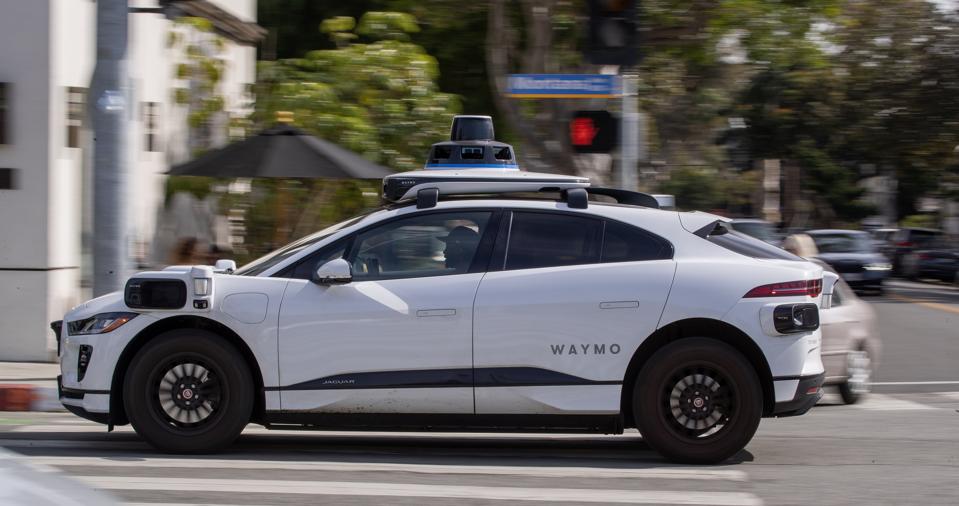Nearly half of Americans say they would never ride in a robotaxi — and we can’t even blame Tesla’s messy robotaxi launch in Austin, as most of them hadn’t even heard about it.
That’s according to a survey focused on Tesla by the Electric Vehicle Intelligence Report (EVIR), which found that 65% of 8,000 people polled had heard nothing at all about the Tesla robotaxi launch, despite reports of cars driving down the wrong side of the road and speeding. After reading one such story, half of those surveyed by EVIR said they would now be less interested in using a Tesla robotaxi.
Tesla aside, 46% of those surveyed said they would never consider riding in any robotaxi, with a further 31% saying they’re not currently up for it, but never say never. A further 1% said they had been for a robotaxi ride, and wouldn’t do it again.
People over 65 were more likely to say no to driverless taxis (58%) versus younger cohorts (47% for the 45-64 crowd and 35% for 18-44 year olds) and people living in rural regions (53%) were more likely to refuse a robotaxi ride than suburban or urban counterparts (46% and 37% respectively).
Forget taking a ride: more than half (53%) said robotaxis they strongly or somewhat believe they should be outright illegal.
“Public skepticism is understandable,” Elad Hofstetter, chief business officer for Innoviz Technologies, told me over email. “The early promises around autonomous vehicles in the late 2010s set sky-high expectations, but the industry hasn’t always delivered consistent, real-world performance to match.”
Previous riders are more positive about robotaxis
Those EVIR poll results fit with previous studies: a survey of Brits in July by Startline suggests just 11% would hop in a driverless car now, with only 4% saying the vehicles are currently safe enough for public roads.
For what it’s worth, Kathy Winter, the COO of driverless firm May Mobility, told Wired that she thinks such survey results are “simply an artifact of low exposure to a new technology”.
And that may be correct: other studies have shown that people do feel more positive about driverless cars once they’ve gone for a ride.
Belgian academics revealed that people developed more positive feelings about driverless technologies after going for a ride in one, saying that their study “indicates that large scale survey studies that do not require prior experience with automated driving capture an underestimation of the acceptance of autonomous vehicles.” That said, the study also found a “decrease in perceived usefulness” after going for a ride, too.
Additionally, a report last year by JD Power suggested that consumer confidence is 56 percentage points higher among those who have ridden in a robotaxi, at a whopping 76% versus 20% for those who have never been in a Waymo or other car.
“We believe that public opinion will shift when people experience the benefits for themselves,” said Hofstetter. “Once people experience that firsthand, the feeling of handing over control and seeing the car respond safely and intelligently, they will begin to understand the value.”
Of course, you’re going to have to convince them to get in the car first. And given those polled by JD Power rated safety, reliability and trust as key attributes to their ideal robotaxi service, the negative headlines sparked by Tesla’s bumpy Austin rollout may not be helping the industry’s image, sources told Reuters.
“Unfortunately, there’s been a lot of confusion in the market,” added Hofstetter. “Features like Tesla’s ‘Full Self Driving’ have promised far more than they deliver, leading to public misunderstanding and misplaced expectations. That erodes confidence and some places have already banned the activation of this function on vehicles.”
Robotaxi rollout ramps up
These polls come as Waymo, Tesla and other driverless companies continue to slowly expand to more and more cities, with Tesla adding San Francisco to its list — though with safety drivers in the front seat — and Waymo testing its cars in a wider range of cities, most recently announcing Dallas.“
Beyond the US, robotaxi services are expected to start being allowed on British roads in 2027, a year delayed from previous plans. But that Startline survey suggested that 49% of UK respondents agreed with government plans to push back driverless car trials by a year until 2027, with 29% of those polled said that timeline might even be too soon.
The UK government is currently running a public consultation to help inform that rollout — however, most of the questions are clearly directed at industry rather than individuals.
Perhaps instead of asking about application processes and data sharing systems, the government would be better to also ask if individuals felt safe sharing a road with robotaxis or hailing a ride in one — because right now, surveys such as the one from EVIR suggest that might not be the case.
Indeed, a study published in May by Partners for Automated Vehicle Education (PAVE) suggests that driverless cars “need the help of the public”, but that industry “often misunderstand what matters to the public”.
What matters to the public? According to the report, individuals want to know how it will benefit them and how they will use the technology — but they also want to trust the technology.
“What’s it good for,” and “will it hurt me” are fair questions, after all. And if the driverless industry can’t answer them sufficiently, would-be customers may balk at taking a robotaxi ride.

